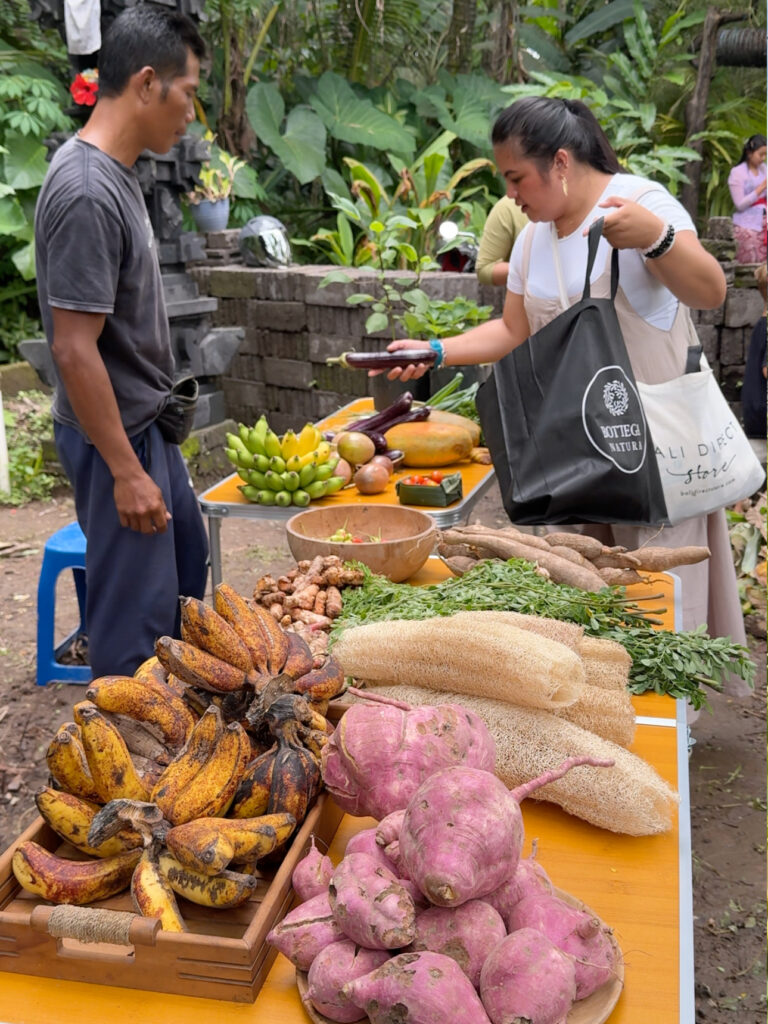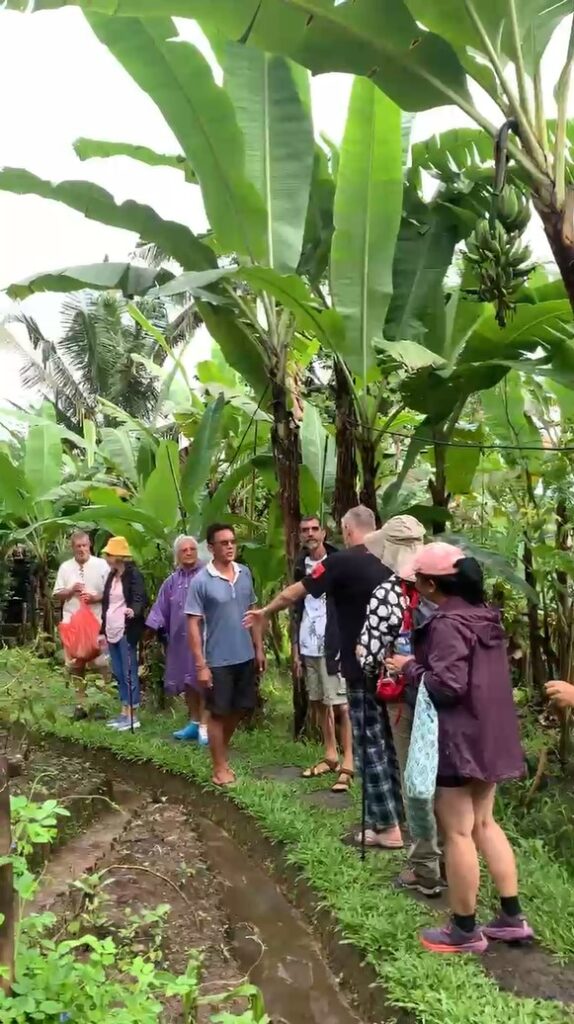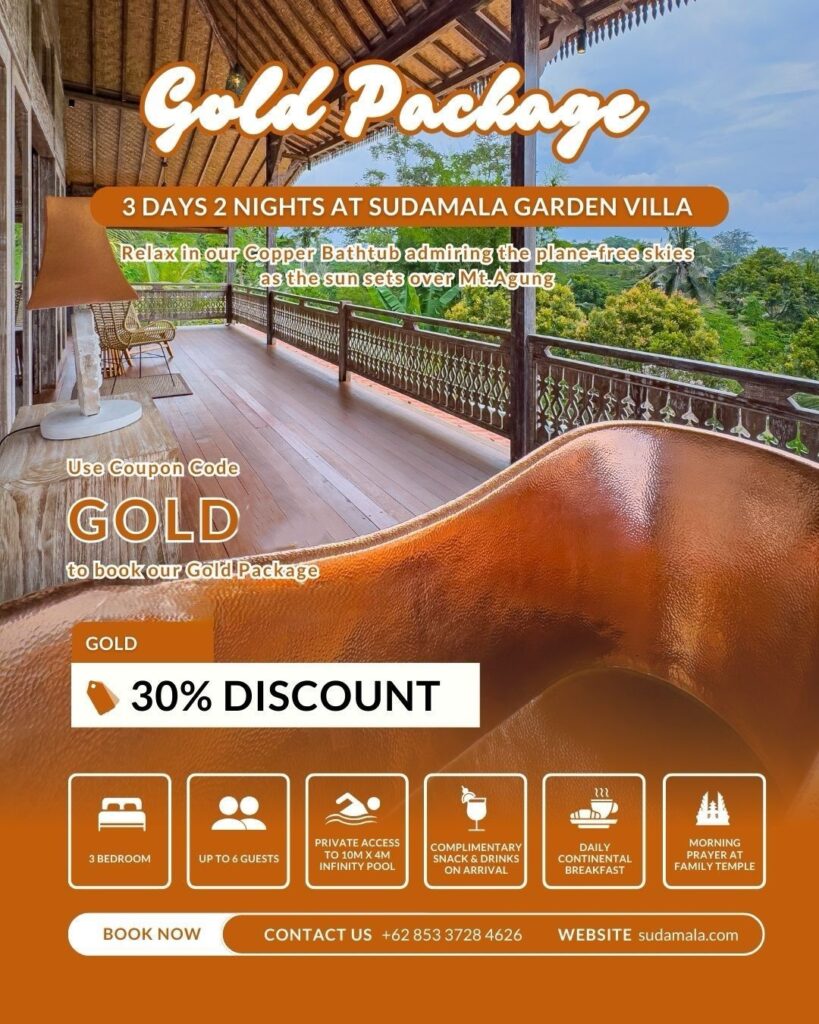In a world where speed is currency and stillness a luxury, Bali has quietly emerged as a sanctuary for those seeking to live more deliberately. Amid the scent of frangipani and the rhythm of gamelan, the slow living movement has found fertile ground — not as a fleeting trend, but as a way of life.
From yoga retreats and eco-villages to digital detoxes and mindful travel, Bali has become a global capital for conscious living. This transformation wasn’t a sudden occurrence; rather, it is the organic result of a unique blend of culture, spirituality, and community that encourages people to embrace a more intentional pace.
Rooted in Ritual
The Balinese have long lived in tune with a form of slow living, guided by Tri Hita Karana — the philosophy of harmony between people, nature, and the divine. This worldview shapes everything from daily offerings and ceremonies to farming practices and familial relationships. There is a natural pause embedded in daily life, a sense of rhythm dictated by the land and the cosmos.
Tegallalang Rice Paddies, often admired for their breathtaking beauty, represent much more than a popular photo backdrop. They function as a living system of community, balance, and sustainability through the ancient subak irrigation method. Traversing these rice terraces is not merely an aesthetic experience, but a living lesson in cooperation and reverence for nature.
The Rise of Retreat Culture
Bali’s wellness renaissance has seen the island evolve into a haven for yoga practitioners, wellness seekers, and those wishing to reset. What started as a modest offering has expanded into a wide array of holistic retreats offering everything from meditation and sound healing to detox programmes and immersive cultural experiences.
Modern retreat centres combine mindfulness with cultural grounding — often including activities like visiting Organic Farmers Markets or attending a traditional Bali cooking class. Ingredients used during retreats are typically locally sourced, reinforcing a connection to land, nourishment, and sustainability. These holistic offerings encourage inward reflection and deeper understanding of self, all within an environment that invites calm and contemplation.
Eco-Villages and Permaculture Bali
Away from the main tourist hubs, Bali’s countryside is witnessing a quiet but powerful evolution. Permaculture communities have been sprouting in Ubud, Sidemen, and beyond — blending traditional agricultural wisdom with sustainable living practices. These villages operate on principles of regenerative design, biodiversity, and interdependence.
Workshops in places like Ubud Permaculture or Astungkara Way introduce visitors to composting, food forest creation, and closed-loop systems that align with nature’s cycles. These permaculture Bali hubs often supply local Organic Farmers Markets, creating vibrant ecosystems where food, education, and community coexist.
Participating in these experiences fosters a sense of purpose and connection. They serve as gentle reminders that growth — whether agricultural or personal — happens best in unhurried, intentional spaces.
Digital Detox and Mindful Travel
Bali has also earned a reputation as a destination for digital detox — a counterbalance to the constant connectivity of modern life. Set amid rice fields and tropical forests, digital detox retreats offer sanctuary from notifications and newsfeeds, replacing screen time with silent walks, sunrise meditations, and handwritten reflections.
The absence of technology doesn’t feel like deprivation; it feels like renewal. Many who arrive feeling overwhelmed find unexpected clarity in nature’s quiet, in shared meals without distractions, and in stillness that allows space for deeper thought.
Beyond retreat life, mindful travel is gaining ground. Travellers are making more conscious decisions — choosing family-run guesthouses over large resorts, engaging in Bali cultural tours that celebrate local customs, and seeking out Bali cooking classes hosted in traditional village kitchens. Time spent wandering through a Organic Farmers Market or learning the story behind a hand-woven basket becomes more meaningful when approached with presence and curiosity.
Voices of the Movement
The slow living movement in Bali thrives on its diversity. Locals, expats, and short-term travellers alike participate in this communal ethos. Many Balinese families are leading the charge by opening their homes for cultural immersions, farming education, and cooking experiences rooted in ancestral knowledge.
Meanwhile, individuals from around the world — former professionals, entrepreneurs, and creative people — have chosen to embrace a slower rhythm of life in Bali. Some manage eco-lodges and wellness retreats; others facilitate permaculture workshops or offer meditation classes. Together, this mosaic of perspectives contributes to a shared culture of mindfulness, respect, and simplicity.
These individuals are not seeking escape. They are building lives of substance and service — anchored in place, purpose, and a slower way of being.
 A Movement with Momentum
A Movement with Momentum
Bali’s journey into the heart of the slow living movement has not been without its complexities. The island continues to grapple with the challenges of tourism, environmental pressures, and economic change. However, its response — rooted in grassroots action and collective wisdom — shows promise.
Eco-conscious travellers are now engaging more meaningfully. Bali cooking classes often include visits to local farms. Cultural tours are led by local communities who share stories of their traditions with pride. Businesses and farms aligned with permaculture Bali principles are thriving through community-supported agriculture and market collaborations.
This growing momentum is not just a lifestyle shift — it is a cultural reawakening. In Bali, slow living is not about doing less. It’s about doing what matters, more deeply.



 A Movement with Momentum
A Movement with Momentum